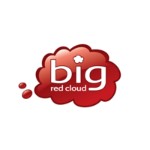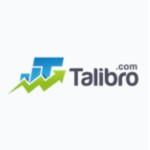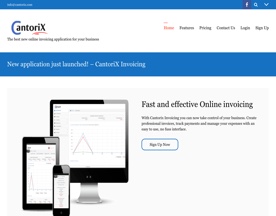Accounting technology is dramatically reshaping how businesses manage their finances, offering efficiency, accuracy, and real-time insights like never before. Dive in to discover its transformative impact.

The Dawn of the Digital Finance Era
Ah, accounting! It’s a term that might conjure up images of dusty ledgers, calculators buzzing away, and diligent accountants poring over columns of numbers, trying to make sense of it all. For centuries, the essence of accounting remained unchanged. It was all about manually recording transactions between accounting firms, calculating profits and losses, and ensuring that every penny was accounted for.
However, like every other field, accounting wasn’t immune to the tidal wave of technological advancements. The rapid pace of innovation over the past few decades has left an indelible mark on this age-old profession. From the first introduction of computerized accounting systems in the late 20th century to today’s sophisticated cloud-based solutions and artificial intelligence, the transformation has been nothing short of remarkable.
Let’s take a trip down memory lane, shall we? Remember the days when business owners had to rely on physical paperwork for every transaction? Each sale, every purchase, every expense had to be diligently recorded in massive ledgers. It wasn’t just time-consuming; it was also prone to human error. And then there was the tedious task of reconciling these records at the end of each month or year, which often led to late nights and copious amounts of coffee.
But as technology started weaving its way into our daily lives, the accounting profession began to see the dawn of a new era. Computers made their way into the accounting world, replacing those cumbersome ledgers with digital spreadsheets. This was just the beginning. As technology advanced, software solutions designed specifically for accounting began to emerge. These tools promised efficiency, accuracy, and the ability to handle large volumes of data with ease.
The internet era further accelerated this transformation emerging accounting technologies. With the rise of cloud computing, businesses no longer needed to be tethered to a physical location to manage their finances. Cloud-based accounting solutions offered the flexibility to access financial data from anywhere, anytime. This was a game-changer, especially for small businesses and freelancers who needed a cost-effective and flexible solution.
But it’s not just about the convenience. The integration of technology into accounting has also paved the way for more profound insights into business finances. Advanced analytics, machine learning, real-time reporting, and forecasting tools have empowered businesses to be more proactive, making informed decisions that drive growth.
As a financial enthusiast who’s equally passionate about tech, I find this evolution exhilarating. The fusion of accounting and blockchain technology has created a dynamic ecosystem, where businesses, big or small, can harness the power of data to thrive in a competitive landscape.
Key Points:
- The essence of accounting has transformed dramatically with technological advancements.
- The shift from manual to digital has brought about efficiency, accuracy, and profound financial insights.
- Cloud-based solutions offer flexibility and real-time data access, making them indispensable for modern businesses.
- The integration of technology in accounting empowers businesses with tools for growth and competitive edge.

The Transformative Impact of Accounting Technology
Automated Processes and Efficiency
Ever tried manually tallying a month’s worth of expenses? Or cross-referencing invoice numbers with payment receipts? It’s exhausting, prone to errors, and, let’s face it, not the best use of your time. Enter accounting software. Automation is perhaps the most significant gift of accounting technology. Whether it’s reconciling bank transactions, categorizing expenses, or generating your financial statements and reports, automation ensures accuracy and saves precious hours.
Key Points:
- Automation reduces manual intervention, minimizing errors.
- Time-saving processes free up resources for strategic tasks.
Real-time Financial Insights
Imagine having a financial crystal ball that lets you peek into your business’s fiscal health anytime, anywhere. With cloud-based accounting solutions, real-time insights are at your fingertips. You can track cash flow, monitor expenses, and even forecast future financial trends. This cloud computing technology empowers businesses to make informed decisions quickly.
Key Points:
- Cloud accounting offers real-time financial data.
- Businesses can make proactive decisions based on current financial health.
Enhanced Security
Financial data is sacred. The last thing you want is a security or big data breach. Thankfully, modern accounting technology places a premium on security. From encryption protocols to multi-factor authentication, these tools ensure that your financial data remains in safe hands.
Key Points:
- Modern accounting tools prioritize data security.
- Features like encryption and multi-factor authentication protect sensitive financial data.

Software Tools Making Waves in Accounting
In today’s digital age, software tools have become the backbone of modern accounting. They’ve transformed the way businesses handle their finances, making the accounting process much more streamlined, efficient, and insightful. Let’s delve deeper into some of these trailblazing tools that are redefining the accounting landscape.
QuickBooks
QuickBooks, developed by Intuit, is often regarded by accounting professionals as one of the stalwarts in the accounting software world. With its comprehensive suite of features, it caters to a wide range of businesses, from small startups to established enterprises.
Features:
- Invoicing: Create professional invoices, track them in real-time, and accept online payments.
- Expense Tracking: Automatically sort and categorize expenses, making tax time a breeze.
- Payroll: Easily manage employee salaries, taxes, and benefits.
- Reporting: Generate detailed financial reports to get insights into business health.
Why it’s useful: QuickBooks offers a holistic solution, covering almost every aspect of business finance. Its user-friendly interface, coupled with robust features, makes it a favorite among many business owners. The added benefit? It’s cloud-based, allowing for real-time data access from anywhere.
Xero
Xero, often dubbed as the “beautiful accounting software”, is known for its sleek design and intuitive user experience. Originating from New Zealand, it has made significant inroads globally, especially among small to medium-sized enterprises.
Features:
- Bank Connections: Link bank accounts for automatic updates and faster reconciliations.
- Inventory Management: Track stock levels and get notified when inventory is low.
- Bill Payments: Schedule and pay bills directly from the platform.
- Multi-Currency: Handle multiple currencies, ideal for businesses with international transactions.
Why it’s useful: Xero stands out with its emphasis on simplicity and design. The platform is cloud-native, ensuring seamless updates and real-time data access. Its ability to integrate with a plethora of third-party apps makes it highly versatile, catering to diverse business needs.
FreshBooks
FreshBooks is designed with freelancers and small businesses in mind. Its focus is on making invoicing and expense tracking as straightforward as possible, eliminating the complexities often associated with doing financial reporting and management.
Features:
- Time Tracking: Monitor the time spent on projects and bill clients accordingly.
- Collaboration: Share project updates and collaborate with clients directly on the platform.
- Automated Expenses: Snap photos of receipts and let FreshBooks categorize and file them.
- Customizable Invoices: Design invoices that reflect the brand’s identity.
Why it’s useful: FreshBooks offers a blend of simplicity and functionality. For freelancers and small business owners who might not have extensive accounting knowledge, it provides an easy-to-navigate platform. Plus, its emphasis on collaboration makes client interactions more streamlined and transparent.
Key Points:
- Modern accounting tools have transformed the way businesses handle finances, making processes more streamlined and efficient.
- QuickBooks offers a comprehensive solution, ideal for diverse business needs.
- Xero emphasizes simplicity and design, with a cloud-native platform that integrates with numerous third-party apps.
- FreshBooks caters to freelancers and small businesses, with a focus on invoicing, expense tracking, and client collaboration.

FAQs on Accounting Technology
In the ever-evolving realm of accounting technology, questions abound. Whether you’re a seasoned business owner or just starting out, it’s natural to seek clarity on this transformative aspect of modern finance. Here are some frequently asked accounting industry top questions, complete with detailed answers, to help shed light on the subject.
1. How does cloud accounting differ from traditional accounting?
Traditional accounting often involves using desktop software or even manual record-keeping with data stored on a local computer or physical ledgers. This local storage restricts access to data to specific devices or locations. Cloud accounting, conversely, operates online. Data is stored on remote servers, granting users the flexibility to access their financial information from any device with an internet connection—be it a laptop, smartphone, or tablet. This setup offers the advantages of real-time data access, flexibility, and secure data backups.
2. Is my financial data safe on cloud accounting platforms?
Absolutely, data security is paramount for reputable cloud accounting platforms. These platforms utilize encryption techniques to ensure unauthorized individuals can’t interpret your data. Features such as multi-factor authentication, firewall protections, and consistent security audits further fortify data safety. While no system is entirely invulnerable, top-tier cloud accounting platforms prioritize user data security.
3. Can accounting software integrate with other business tools?
Yes, a significant advantage of contemporary accounting software is its integration capabilities. Many tools can integrate smoothly with other business systems, from CRM systems and e-commerce platforms to payment gateways and inventory management tools. These integrations facilitate a unified data flow across platforms, enhancing consistency and reducing the manual data entry and input.
4. How user-friendly are modern accounting tools for non-accountants?
Modern accounting tools are designed with user experience in mind. They cater not only to seasoned accountants but also to business owners, freelancers, and individuals with little to no accounting background. With intuitive interfaces, guided tutorials, and responsive customer support, these tools aim to simplify complex accounting tasks for everyone.
5. Do I need to install any software on my computer?
Not necessarily. Many of today’s accounting tools are cloud-based, meaning you can access them via a web browser without installing any software. However, some tools might offer desktop versions or apps for enhanced performance or offline access.
6. Can I access my financial data on the go?
Absolutely! Cloud-based accounting solutions allow you to access your financial data from anywhere with an internet connection. Many platforms also offer mobile apps, ensuring you have access to your data even when you’re on the move.
7. How do accounting tools handle multi-currency transactions?
Most modern accounting tools are equipped to handle multi-currency transactions. They can track expenses, income, and other financial transactions made in multiple currencies, update exchange rates in real-time or at regular intervals, and provide reports in your base currency, factoring in any exchange rate fluctuations.
8. Are these tools scalable as my business grows?
Yes, many accounting tools are designed to grow with your business. As your operations expand and become more complex, these platforms can accommodate additional data, more users, and offer advanced features to meet your evolving needs.
9. What kind of support can I expect from these platforms?
Most reputable accounting software providers offer robust support. This can range from online documentation, video tutorials, and FAQs to live chat, email support, and even phone support. Many also have active user communities where you can seek advice or share experiences.
10. How often should I back up my accounting data?
Regular data backups are essential. While many cloud accounting platforms automatically back up your data daily and store it in diverse locations, it’s wise for businesses to perform manual backups periodically. For those with high transaction volumes or frequent data changes, daily or weekly backups are recommended. Always ensure that these backups are stored securely, either on external drives or in secure cloud storage.
Key Points:
- Cloud accounting grants flexibility, real-time data access, and security, distinguishing it from traditional methods.
- Prominent cloud accounting platforms prioritize data security, employing encryption and other safeguards.
- Integration with other business tools ensures consistent and efficient data flow.
- Modern accounting tools, designed for user-friendliness, cater to both accountants and non-accountants alike.
- Regular data backups, both automatic and manual, are crucial to protect financial data.

Conclusion: Embracing the Future of Finance
As we journey deeper into the digital age, accounting technology’s role becomes increasingly central. Gone are the days of manual ledgers and calculators. Instead, we have powerful software at our disposal, enabling businesses of all sizes to manage their finances with unprecedented precision and agility and save time.
If you’re still on the fence about adopting modern accounting tools, consider the benefits: streamlined operations, real-time insights, enhanced security, and more. It’s not just about keeping up with the times; it’s about harnessing the power of these accounting technology trends to drive business growth.
For those already leveraging these tools, kudos! You’re part of a transformative movement reshaping the financial landscape. And for those yet to dip their toes, I genuinely urge you to explore the world of accounting technology. It’s a game-changer, and in this rapidly evolving business world, staying ahead of the curve with accounting technologies is more critical than ever.
Key Points:
- Accounting technology is no longer optional; it’s essential for modern businesses.
- The benefits of embracing these tools are manifold, from efficiency to data security.
- Staying updated with the latest in accounting tech is crucial for future business success.















